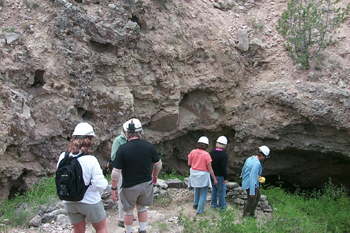
 Virtual Field Trip—Group 7
Virtual Field Trip—Group 7
Geologic Features of Fort Stanton

GPS Location: UTM 13s, 0454249m east, 3707371m north
The group
Sinkhole is conical, funnel-shaped with the cave passage spiraling down.
The walls of the sinkhole are exposed, brecciated limestone. It appears to be an erosional feature.
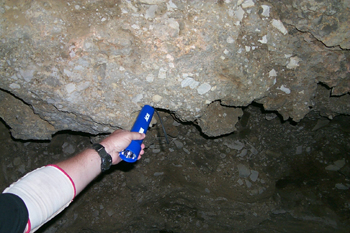
GPS Location: No reading while in the cave.
The group
The walls of the sinkhole are exposed, brecciated limestone. It appears to be an erosional feature.
Intermittently throughout the cave you will see features called box-work which are calcite-filled fracture. These features have a distinct honeycomb appearance. These are formed by the bed-rock cracking and the cracks filling in with calcite.
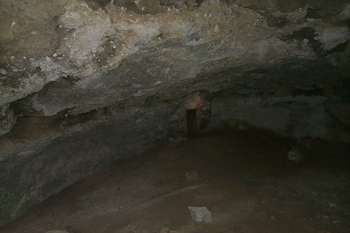
The group
This small room was used by a shepherd who kept goats in the area and was said to have kept his feed in this room. Another story suggested that the military in the area used the room to grow mushrooms to spice up otherwise bland food.
Notice the small door about center-right in photo.
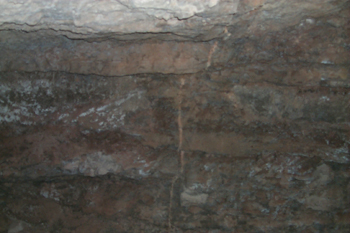
The group
This photo shows a thrust fault exposed on the wall which continues across the ceiling. The left side of the fault is pushing upwards over the right side of the fault.
Notice the broken light-colored line.
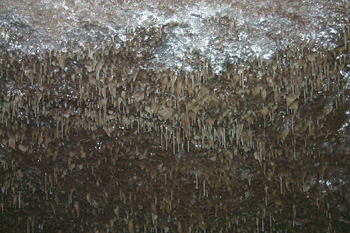
Actinomnycetes Bacteria and Soda Straws
The group
This photo shows the actinomycetes bacteria and the soda straws. The soda straws are made of calcium carbonate but have been heavily vandalized so that only the stubs remain. The lighter reflective areas represent actinomycetes bacteria which are covered by a thin calcium carbonate crust which holds droplets of water making them reflective.
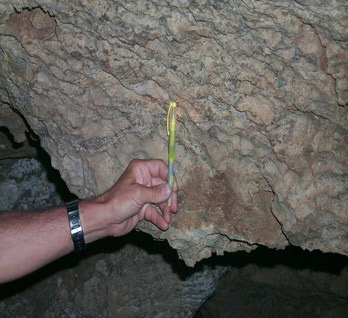
The group
Scallops in the cave walls are representative of the flow of water. The size and orientation of the scallops indicate the direction, speed and volume of the water. Small scallops indicate fast moving water and large scallops indicate slow moving water.




